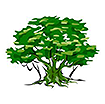Music
Free instrument loan for pupils
www.suffolkmusichub.co.uk/loan
Our Music Curriculum Intent
‘Music enriches individual lives as well as a school’s wider community’
At Reydon Primary School, our pupils will learn that music is a universal language that embodies one of the highest forms of creativity. It is our intent that we make music an inspiring and enjoyable learning experience which develops the children’s musical skills and prepares them in readiness for high school. We encourage children to participate in a variety of musical experiences through which to develop a love of music and develop their talent as musicians, and in turn increase their self-confidence, creativity and sense of achievement.
Our teaching focuses on developing the children’s ability to understand rhythm and follow a beat through performing on a range of musical instruments. By singing songs, children learn about the structure and organisation of music. We teach them to listen and to appreciate different forms of music across different time periods, cultures and traditions. This supports children to understand the cultural capital of being open minded in their listening as well as knowledgeable about a breadth of musical genres in the world today. The children learn to appreciate how music supports other areas of the curriculum such as dance and drama.
Children develop descriptive language skills in music lessons when learning about how music can represent different feelings, emotions and narratives. We also teach technical vocabulary such as volume, pitch, beat and rhythm and encourage children to discuss music using these terms. As pupils progress, they should develop a critical engagement with music, allowing them to compose and to listen with confidence.
Aims:
Key Stage 1 & 2
The national curriculum for music aims to ensure that all pupils:
- Perform, listen to, review and evaluate music across a range of historical periods, genres, styles and traditions, including the works of the great composers and musicians.
- Learn to sing and to use their voices, to create and compose music on their own and with others, have the opportunity to learn a musical instrument, use technology appropriately and have the opportunity to progress to the next level of musical excellence.
- Understand and explore how music is created, produced and communicated, including through the inter-related dimensions: pitch, duration, dynamics, tempo, timbre, texture, structure and appropriate musical notations.
Key Stage 1 National Curriculum Attainment:
Pupils should be able to:
- Use their voices expressively and creatively by singing songs and speaking chants and rhymes.
- Play tuned and untuned instruments musically.
- Listen with concentration and understanding to a range of high-quality live and recorded music.
- Experiment with, create, select and combine sounds using the inter-related dimensions of music.
Key stage 2 National Curriculum attainment:
Pupils should be able to:
- Pupils should be taught to sing and play musically with increasing confidence and control. They should develop an understanding of musical composition, organising and manipulating ideas within musical structures and reproducing sounds from aural memory.
Pupils should be taught to:
- play and perform in solo and ensemble contexts, using their voices and playing musical instruments with increasing accuracy, fluency, control and expression
- improvise and compose music for a range of purposes using the inter-related dimensions of music
- listen with attention to detail and recall sounds with increasing aural memory
- use and understand staff and other musical notations
- appreciate and understand a wide range of high-quality live and recorded music drawn from different traditions and from great composers and musicians
- develop an understanding of the history of music.
Our Music Curriculum Implementation
Key Stage 1 and Key Stage 2
Our pupils will learn that music is a universal language that embodies one of the highest forms of creativity. They will be inspired and engaged by music education. Music lesson will engage and inspire pupils to develop a love of music and develop their talent as musicians, and in turn increase their self-confidence, creativity and sense of achievement. As pupils progress, they should develop a critical engagement with music, allowing them to compose, and to listen with discrimination to the best in the musical canon.
The Charanga scheme of work is used from Year 1 - 6 to ensure a wide exposure to different genres of music, with lots of practical opportunities to explore and develop as musicians and singers.
The school also has whole class ensemble teaching in Years 3 and 4 where children are taught a specific musical instrument for a school year. In Year 3, the pupils are currently learning percussion instruments, whereas in Year 4, children are taught the flute. These lessons incorporate teaching musical notation, singing, as well as learning to play an instrument. Follow on group music lessons are also available to pupils to continue to develop their skills and ability on a musical instrument the following year. Opportunities are taken to perform in class, in whole assemblies and also to parents and the wider community.
Additional opportunities are offered in music, such as the key stage 2 choir which performs regularly in school and at events in the local community.
Music Learning Journey
music learning journey 2022 2023.pdf
Our Music Curriculum Impact
Music assessment is ongoing to inform teachers with their planning, lesson activities and differentiation. Summative assessment is completed at the end of each unit to inform leaders of the improvements or skills that still need to be embedded. Music is monitored throughout all year groups using a variety of strategies such as folder/book scrutinies, lesson observations and pupil interviews.

